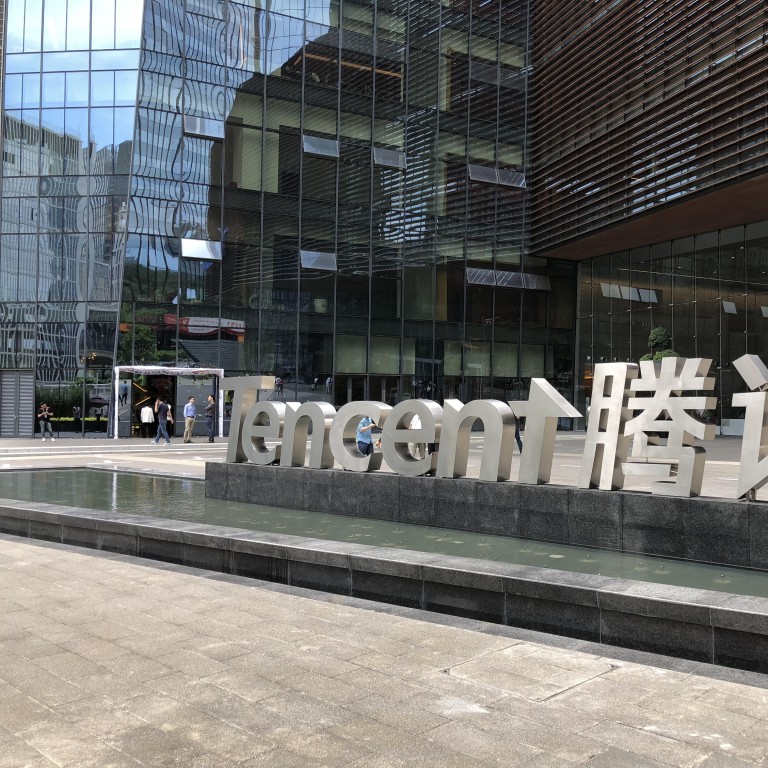
Tencent takes big step to free WeChat from smartphones as battle shifts to business customers and self-driving cars
- Tencent introduces Siri-like voice assistant called Xiaowei at WeChat conference in Guangzhou
Tencent Holdings took a big step in extending the use of its ubiquitous WeChat app beyond smartphones, with the introduction of a Siri-like voice assistant that could potentially be deployed by businesses and in smart cars as the battle for growth shifts to industrial uses of the internet.
With more than 1 billion active users, WeChat and its ecosystem of mini-apps has become a feature in daily life for many Chinese consumers, who use it to do everything from messaging to paying bills to ordering takeaway.
But with an increasingly saturated and competitive market, Tencent along with other internet companies have been casting their eye on the so-called industrial internet, shorthand for enterprise users and the emerging universe of smart, connected devices from the voice-operated home speaker to increasingly intelligent self-driving cars.
The Shenzhen-based giant on Wednesday unveiled a virtual assistance system called WeChat italking, or Xiaowei in Chinese, which can work on devices from smart speakers to cars, according to Tom Zhou, a WeChat executive, said at an annual event in Guangzhou for developers and partners.
The assistant will link WeChat users with Tencent’s stable of services including QQ Music. Meituan Dianping, Didi Chuxing and Mobike, three on-demand services providers that all count Tencent as a strategic investor, will also connect with Xiaowei.
Xiaowei represents a further step in co-founder and chairman Pony Ma Huateng’s plan to diversify Tencent into serving more businesses and industries. Tencent’s consumer-facing businesses, such as gaming and social media, are facing constraints ranging from government regulation to intense competition from challengers such as TikTok and Toutiao owner Bytedance.
The planned rollout of the Xiaowei assistant across the Tencent eco-system also comes after a companywide restructuring late last year that was aimed at killing a silo culture that pitted business unit against each other.
The strategy to expand into the industrial internet is also in line with the Chinese government’s aim to promote the internet of things, on the premise that the next phase of technology development would centre on connected devices from household appliances to building management to traffic systems, and that China’s strength as an industrial manufacturing base would give it an advantage in leapfrogging developed economies.
In automobiles, for instance, Ma said last May that Tencent was working on a voice-operated version of WeChat for in-vehicle use, a move that could extend the platform’s content and services to millions of drivers and passengers on the road.
China is home to the world’s biggest auto market and more electric vehicles are sold in the market than anywhere else.
At the WeChat event, Tencent said it will focus on building an ecosystem of mini-programs on WeChat, increase opportunities for developers to earn money from their apps. Mini programs refer to applications smaller than 10 megabytes that can run instantly on WeChat’s interface. They offer speed of access to users because they do not have to be downloaded from an app store but can run from within WeChat on any operating system, pitting Tencent against companies like Apple which gets revenue for app downloads.
WeChat mini programs now cover more than 200 industries and have logged 100 billion transactions for government and business services, according to Tencent.
About 63 million of the users are aged over 55 and they represent one of the fastest-growing demographic groups for WeChat, the company said.


